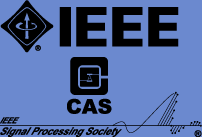Ethical Signal Processing: Navigating Privacy, Bias, and Transparency in the Digital Age
In our ever-evolving digital landscape, signal processing has emerged as a crucial technology that shapes the way we interact with data and information. As we harness the power of signal processing to transform raw data into actionable insights, a new set of ethical considerations comes to the forefront. Ethical signal processing holds the key to ensuring that our technological advancements are accompanied by responsible practices that safeguard privacy, mitigate bias, and uphold transparency. In this article, along with addressing "do my excel project for me"(if you're seeking assistance with your excel project, you may find useful resources at https://specialessays.com/do-my-excel-homework/) , we'll delve into the intricate world of ethical signal processing, exploring how it impacts students, researchers, and practitioners in the fields of signal processing, computer science, and data ethics.
Understanding Ethical Signal Processing
At its core, ethical signal processing encompasses a commitment to responsible and morally sound practices when developing and deploying signal processing technologies. In an age where data flows freely and algorithms make decisions that impact our lives, the need for ethical considerations becomes paramount. Ethical signal processing transcends the technical realm; it's about making choices that align with human values and societal well-being. The significance of ethical signal processing cannot be overstated. It forms the foundation upon which we build trust in technological systems. When ethical principles guide our signal processing endeavors, individuals, societies, and the technology itself benefit. Transparent and ethical practices contribute to a more inclusive and equitable digital world.
Privacy Challenges and Solutions
Privacy is a cornerstone of ethical signal processing. In a world where data breaches and unauthorized access to personal information have become distressingly common, safeguarding privacy is imperative. Signal processing technologies often deal with sensitive data, raising concerns about how that data is collected, stored, and utilized.
Privacy-preserving techniques, such as encryption, offer powerful tools to protect sensitive information. Encryption converts data into a secure code that only authorized parties can decipher, mitigating the risk of unauthorized access. Another key concept is differential privacy, which balances the need for data utility with individual privacy. By injecting controlled noise into datasets, this technique prevents the identification of specific individuals while still allowing meaningful analysis.
Real-world examples underscore the urgency of these privacy challenges. Consider the healthcare sector, where patient data must be anonymized to prevent reidentification and uphold patient confidentiality. Ethical signal processing solutions play a pivotal role in ensuring that our data-driven world remains respectful of personal privacy.
Tackling Bias in Signal Processing
The issue of bias is a critical consideration in signal processing. Algorithms can inadvertently perpetuate biases present in the data they're trained on, resulting in unfair outcomes. Bias can disproportionately affect marginalized groups and reinforce existing inequalities.
Recognizing sources of bias, whether inherent in data or introduced through algorithmic design, is essential. Bias mitigation techniques involve identifying and addressing these sources to ensure more equitable results. Incorporating diverse and representative datasets is a key strategy to counteract bias. This practice helps algorithms make decisions that are more reflective of the real world.
Striving for fairness and equity in signal processing applications requires a deliberate effort. A fair algorithm is one that treats individuals fairly regardless of their characteristics. As we navigate bias, case studies provide valuable insights into where bias has caused harm and how ethical signal processing can rectify these issues.
Enhancing Transparency
Transparency in signal processing is a cornerstone of accountability. As algorithms become increasingly complex, it's imperative to understand how they arrive at their decisions. Transparent signal processing involves making algorithms explainable and understandable to both experts and non-experts.
Yet, transparent signal processing is not without its challenges. Explaining complex algorithms in simple terms can be daunting. Tools and methods, such as model visualization techniques, help bridge the gap between technical complexity and user comprehension. The benefits of transparency extend beyond satisfying curiosity; they foster trust and enable meaningful human oversight.
Ethical Decision-Making Framework
Establishing ethical guidelines is fundamental to responsible signal processing. These guidelines offer a framework to guide practitioners through the ethical challenges they may encounter. By integrating ethical considerations into the development lifecycle, signal processing professionals can ensure that their work adheres to ethical standards.
Future Directions and Conclusion
The realm of ethical signal processing is ever-evolving. Emerging trends, such as increased emphasis on fairness, explainability, and accountability, shape the future of this field. As we embark on this journey, it's important to recognize that ethical signal processing is not a destination, but an ongoing commitment.
In conclusion, ethical signal processing is a moral compass that guides us through the complex landscape of technology and data. Navigating the intricate interplay of privacy, bias, and transparency ensures that our digital age is marked by responsibility and respect for individuals. By embracing ethical signal processing, we forge a path toward a more just and inclusive technological future.





